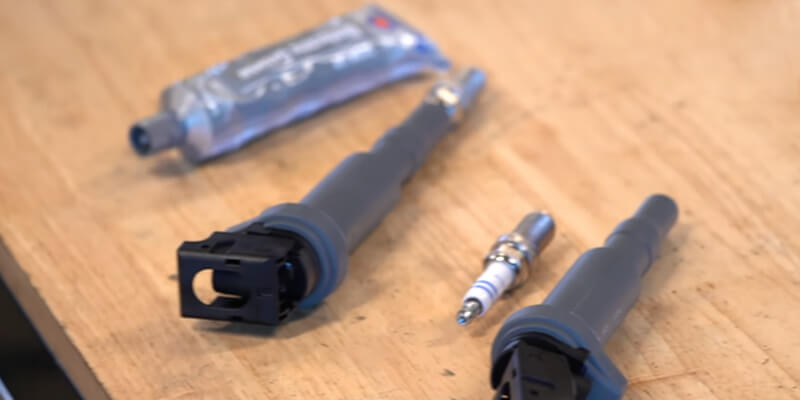If you’ve spent a little time on your car maintenance, you may know about dielectric grease. Though it isn’t as common as motor oil or coolant, this thing is widely used in every garage all the time.
When it comes to maintaining the top-notch quality of your vehicle, you need to apply this grease to the spark plugs or battery terminals as a protective coating. And if you don’t have much experience with it, you may ask where to apply dielectric grease on the spark plug?
Well, to enlighten you with this knowledge, we’ve prepared this write-up. So, without wasting much time, let’s get into that part right away.
What is Dielectric Grease?
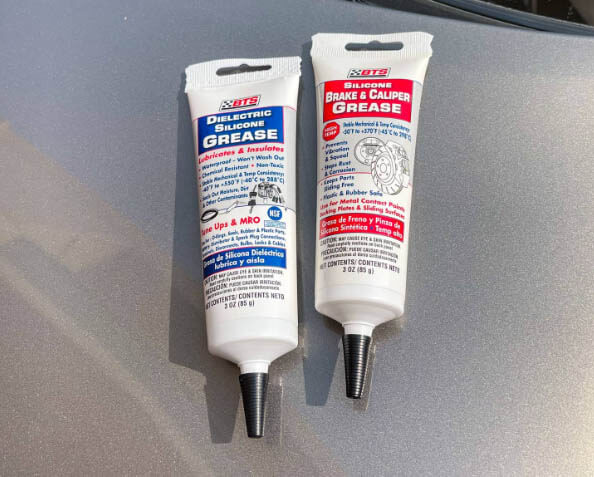
Before you start using something on your beloved vehicles, you should have a clear idea about how that element works and what benefits you’ll get from it.
Dielectric grease is a substance made of a silicon base, and it’s waterproof. It protects the electrical connection in automobiles from corrosion and grime to ensure a better experience.
However, the formula and color of this grease may vary from manufacturer to manufacturer. But they usually look milky white or grayish and serve the same purpose.
Where to Apply Dielectric Grease on Spark Plug – All You Need to Know
Now that you know that you need to use the dielectric grease on the spark plug, it’s time to tell you where to apply it. Well, you can use Dielectric Grease on the inner wall of your spark plug boot. In this way, the electrical connection will be improved.
In the segment below, we’ll share how to use dielectric grease on a spark plug. As the steps will be explained in detail, you’ll never have any trouble while doing that.
How to Apply Dielectric Grease on Spark Plug
Step One – Park the Car
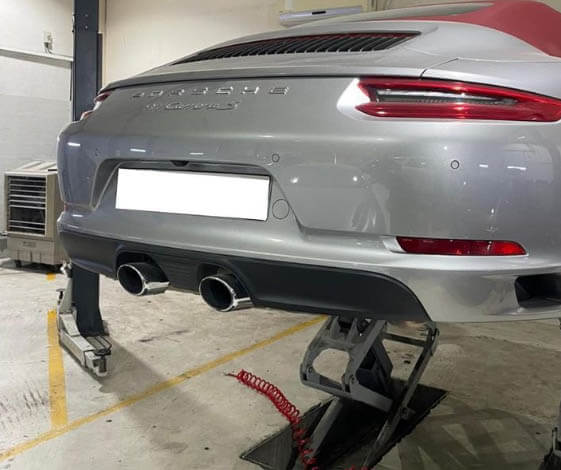
If you’re planning to apply dielectric grease on your vehicle’s spark plug, make sure your car is properly parked in the garage. When the engine cools down, you can start preparing for the grease application.
Step Two – Open the Spark Plug Boot
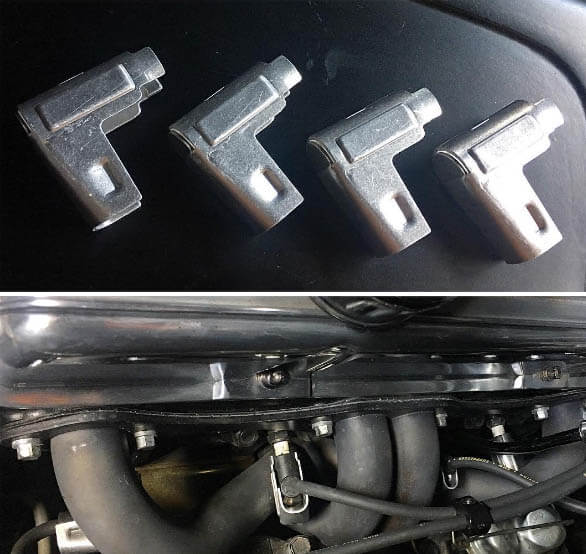
Now that your car isn’t running anymore, it’s time to remove a spark plug boot. After opening it, you need to clean the spark plug boot and the plug boot. This way, you can ensure an effective and even layer of protection on these automobile parts.
Final Step – Apply the Dielectric Grease
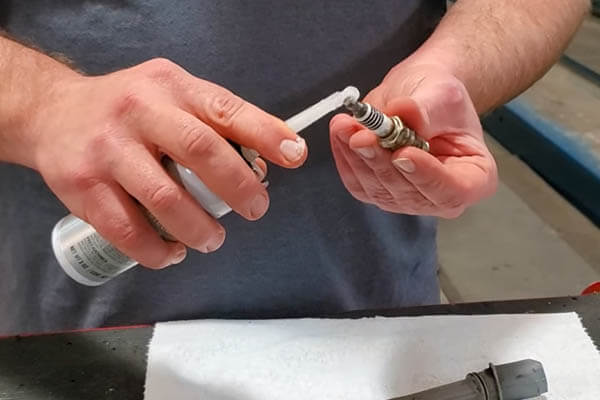
To make the experience fuss-free, you can take a piece of cardboard or any tray and take a little grease on it. If you do so, you won’t have to squirt the grease from the tube frequently, which will be a time saver.
When you have the dielectric grease, apply it to the inner wall of the spark plug boot. For an effortless application, you can use a cotton swab to reach all the wall corners. After applying the grease thoroughly, just pop the boot plug in its place, and you’re good to go.
What Are the Different Between Dielectric and Lubricating Grease
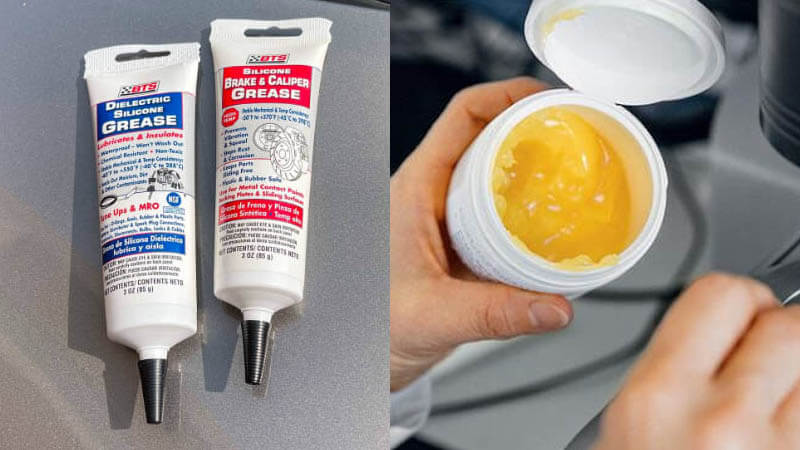
Many people may think if they’re using top-quality lubricating grease, is it necessary to bring dielectric grease on the play? To be honest, the main difference is in the formula, which makes these two things poles apart.
Basically, the dielectric grease is made of silicon and a thickener; the formulation isn’t that fancy or complicated. On the other hand, the lubricating grease is made with various oil additives to enhance your vehicle’s performance and thickeners.
Furthermore, the lubricating oil reduces the friction between automobile parts. And you need to use dielectric grease to protect the electric wiring and prevent accidents. So, you can see, that both of these products come with different benefits. As a result, you cannot use one of these greases to substitute for another.
Advantages of Using Dielectric Grease
You have already heard that dielectric grease can protect electrical wirings and connections from grime and moisture to prevent hazards.
But that’s not just it; you’ll get a wide range of benefits from using this grease. Well, here are the advantages you can expect once you start using dielectric grease.
Prevents Water Damages
One of the most amazing facts about this grease is that it is formulated with silicon. As a result, this grease will repel moisture naturally, which is good news for the various electrical connections within your vehicle.
When you apply this grease, you no longer have to worry about pouring rain damaging your cars. And that’s something impressive.
Getting corroded is the first sign that indicates that your car parts are not in good condition. Months of dirt, grime, and moisture buildup do that to the different parts of your automobile, which eventually shortens the wirings’ longevity. And you can prevent all these troubles by using this grease.
Solves Overheating Issues
Dielectric greases can withstand super high temperatures. Therefore, you can use it as a sealant to stop your car from getting overheated. Thanks to this, maintaining your old model cars will be easier now.
Reduces Risks in High-voltage Connections
One of the most crucial uses of dielectric grease is applied to prevent high voltage connections and spark plugs. This element stops the rubber from getting stuck to the ceramic.
Moreover, it maintains the temperature around the high-temperature area of the spark plug.
Where Can You Apply Dielectric Grease Besides the Spark Plug
The dielectric grease is a super versatile product, so it can be used for multiple tasks. You can use it as a lubricant, sealant, protectant, and insulator without any trouble. So yes, there’re many more places where you can use it. Let’s take a look.
- Bulb sockets
- Battery terminals
- Trailer Connectors
- General electrical connections
FAQ
People use dielectric grease to prevent electrical issues in vehicles as it isn’t conductive. But when you apply a thick layer, you may feel difficulties while starting it.
If you apply a thick coating, you won’t be able to push the sockets all the way in. Hence, your car won’t get enough electricity to turn on, which isn’t a pleasant feeling.
When you’re done with greasing and your vehicle is giving you troubles, just open up the spark plug boot, take a cotton swab and wipe up the extra layer. And hopefully, you won’t feel any difficulties whatsoever.
When it’s about applying dielectric grease, there’s no pressure at all. This means you can skip this part or keep doing it for the rest of your life. But it helps you improve the electrical connection within your vehicle, which is necessary for a trouble-free experience.
No, the dielectric grease is made with silicone, and Vaseline is formulated with petroleum. Hence, you won’t benefit from effective spark plug grease from Vaseline.
You can try petroleum distillates and chlorinated solvents to remove this type of grease without any trouble.
Yes, you can use dielectric grease on the coil packs for a breezy experience.
So, Hopefully, you’ve got the answers!
However, if you ask if spark plug boot grease is necessary or not, the answer is complicated. It comes with some amazing benefits, but it’s not a must-have. But the application method is super simple; thus, you can embrace or leave it, whichever you prefer.

